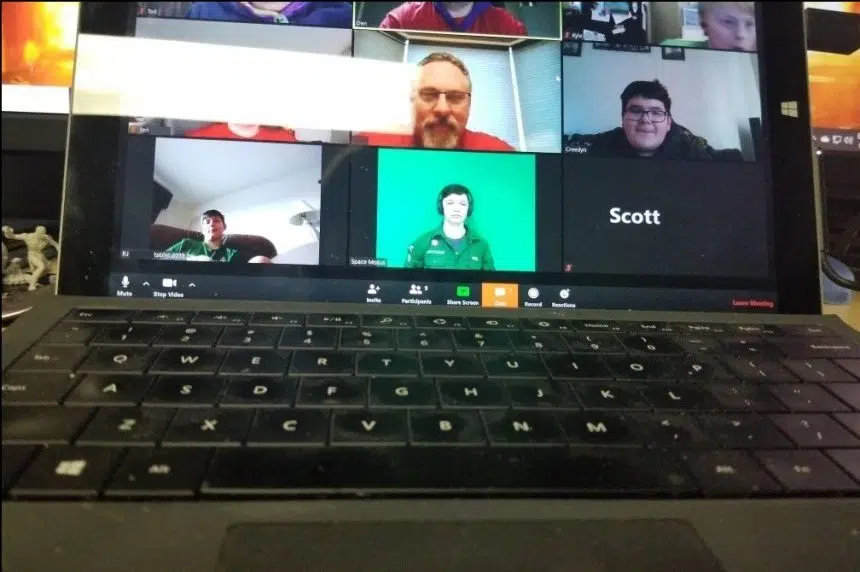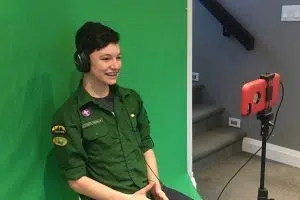Using technology may not normally top the list of scouting skills, but some Scout groups in Regina are turning to virtual video meetings to stay connected in the age of COVID-19.
With team sports and kids’ group activities all cancelled, the leaders of Regina’s 86th Scout Group are getting creative with challenges to keep about 75 members connected and prepared.
In addition to having the scouts work on projects for their individual achievement badges, leaders have come up with solo challenges every week.
“We had them try to camp a couple weeks ago at least for one evening outside,” Scout Group commissioner Geoffrey Trofimuk said. “We actually had a virtual campfire last week where the kids watched a campfire at one of the scout leaders’ houses and then they did skits and songs.”
The kids have also been playing online games, doing Lego challenges for younger cub groups and virtual escape rooms for older members.
Trofimuk said they have an upcoming garbage pickup challenge and they are continuing to plan for the fall group campout in hopes they may be allowed to get together several months from now after missing all spring and summer camp events.
Even the annual Scouts Cub Car Rally is shifting to a new format, with members encouraged to build their own wooden cars at home on their own and then submit pictures for judging.
While the contest will have to focus on the look of the cars this time rather than how fast they can go in a race, Trofimuk said it is at least one way to keep the tradition going.
He feels it is still very important to keep Scouts going in the community, even through the uncertainty and strange social distance measures of a pandemic.
“Working with youth, we’re trying to develop them and build leadership qualities and communication skills and it’s hard enough to do when in person and it’s just further exacerbated when you have to do it virtually,” Trofimuk said.
While group Zoom meetings have come with their own set of challenges, Trofimuk said he can tell kids are really craving connection as the conversations tended to drift off topic for the first few weeks.
“It’s important for them to see the kids that they used to see every week and to have that fun and release and still kind of continue those normal activities that they used to do, just in a different way now,” Trofimuk said.












